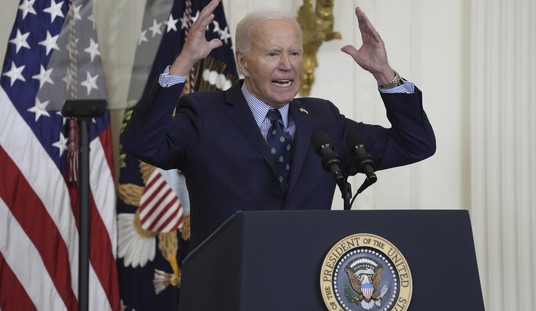The Trump administration’s budget is due to be released on Thursday and it is already generating feelings of dread inside the Beltway:
President Trump’s budget proposal this week would shake the federal government to its core if enacted, culling back numerous programs and expediting a historic contraction of the federal workforce.
This would be the first time the government has executed cuts of this magnitude — and all at once — since the drawdown following World War II, economists and budget analysts said.
The spending budget Trump is set to release Thursday will offer the clearest snapshot of his vision for the size and role of government. Aides say that the president sees a new Washington emerging from the budget process, one that prioritizes the military and homeland security while slashing many other areas, including housing, foreign assistance, environmental programs, public broadcasting and research. Simply put, government would be smaller and less involved in regulating life in America, with private companies and states playing a much bigger role.
The cuts Trump plans to propose this week are also expected to lead to layoffs among federal workers, changes that would be felt sharply in the Washington area. According to an economic analysis by Mark Zandi, chief economist for Moody’s Analytics, the reductions outlined so far by Trump’s advisers would reduce employment in the region by 1.8 percent and personal income by 3.5 percent, and lower home prices by 1.9 percent.
“These are not the kind of cuts that you can accommodate by tightening the belt one notch, by shaving a little bit off of a program, or by downsizing a few staff here or there,” said Robert Reischauer, a former director of the Congressional Budget Office. “These are cuts that would require a wholesale triage of a vast array of federal activities.”
Indeed. If true, this action alone would be ensure Trump’s legacy.
There are several different aspects to the impact of this decision. Yes, it would require entire programs to be folded. That is a good thing. The federal does some things really well… like drop largish bombs on various benighted heathens. I really sucks at some things… job training, education policy, housing policy, etc. The problem here is twofold. First, cabinet secretaries become captured by their bureaucracies and enamored of what that bureaucracy says it can do. They push for more bureaucrats, because more is better. Programs that don’t function all that well get incremental cuts that end up 100% of the organization’s budget being spent on salaries. Then you have a gaggle of bureaucrats jerking one another off by writing memos on what they would do if they were only fully funded. The only way out of this loop is by deciding that the things the government doesn’t do well, like providing affordable housing, just need to go away.
The fact that this will reduce federal nannyism and make government more responsive are features we should all applaud regardless of our political affiliation.
The one interesting point in the story is the obsession on how these cuts would affect the Beltway economy. Like a lot of folks, I have had the experience of being out of work. I don’t wish it on anybody. Well, not very many people, anyway. Ever since the Hunger Games erupted on the scene many observers have drawn the analogy between the wealthy and coddled Capitol City and our own Beltway. There is a lot of truth there. That economic loss the analyst bemoans reflects tax dollars extracted by duress from the outlying districts, or states. It is money that has a better use some other place than in paying bureaucrats to manage our lives.













Join the conversation as a VIP Member